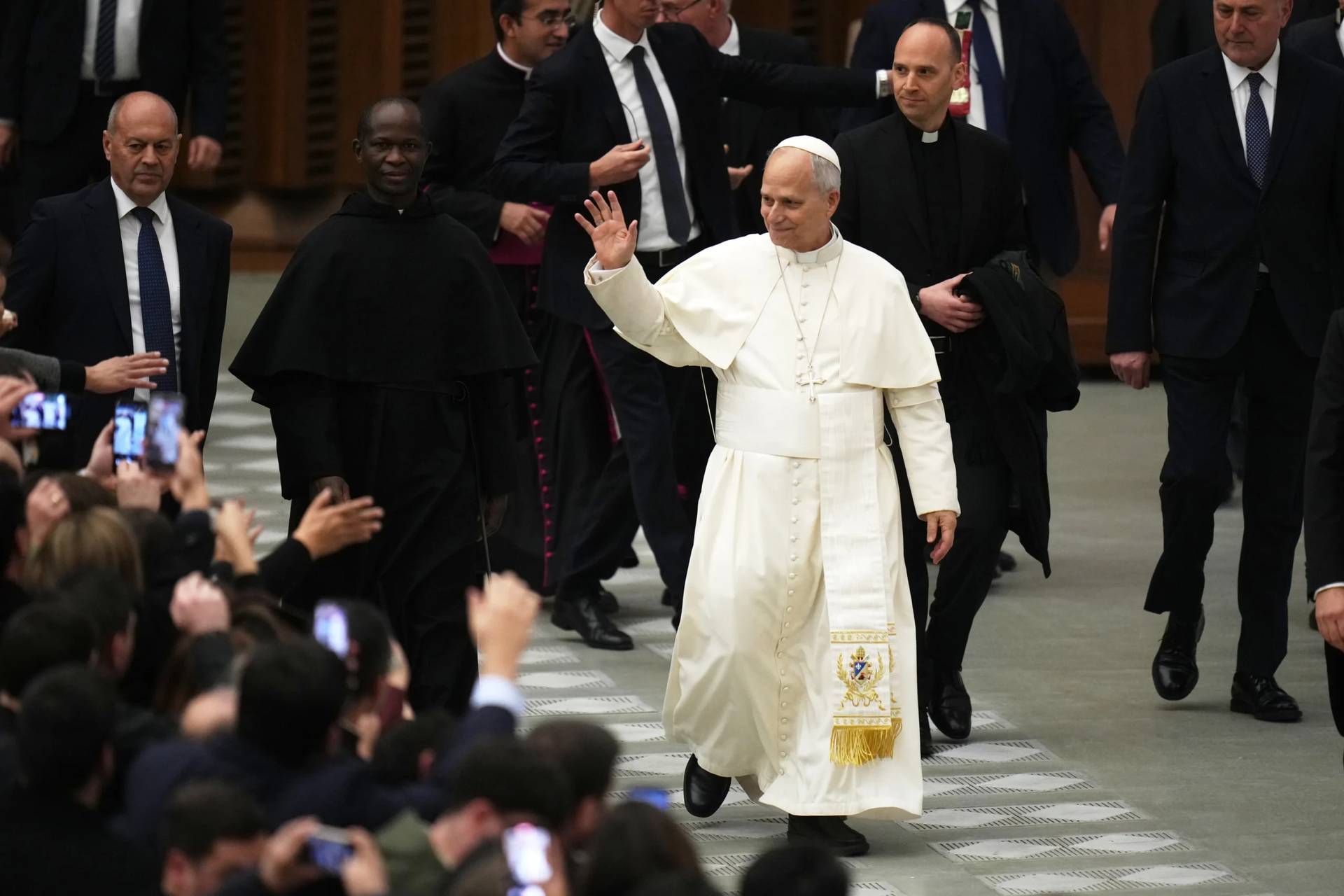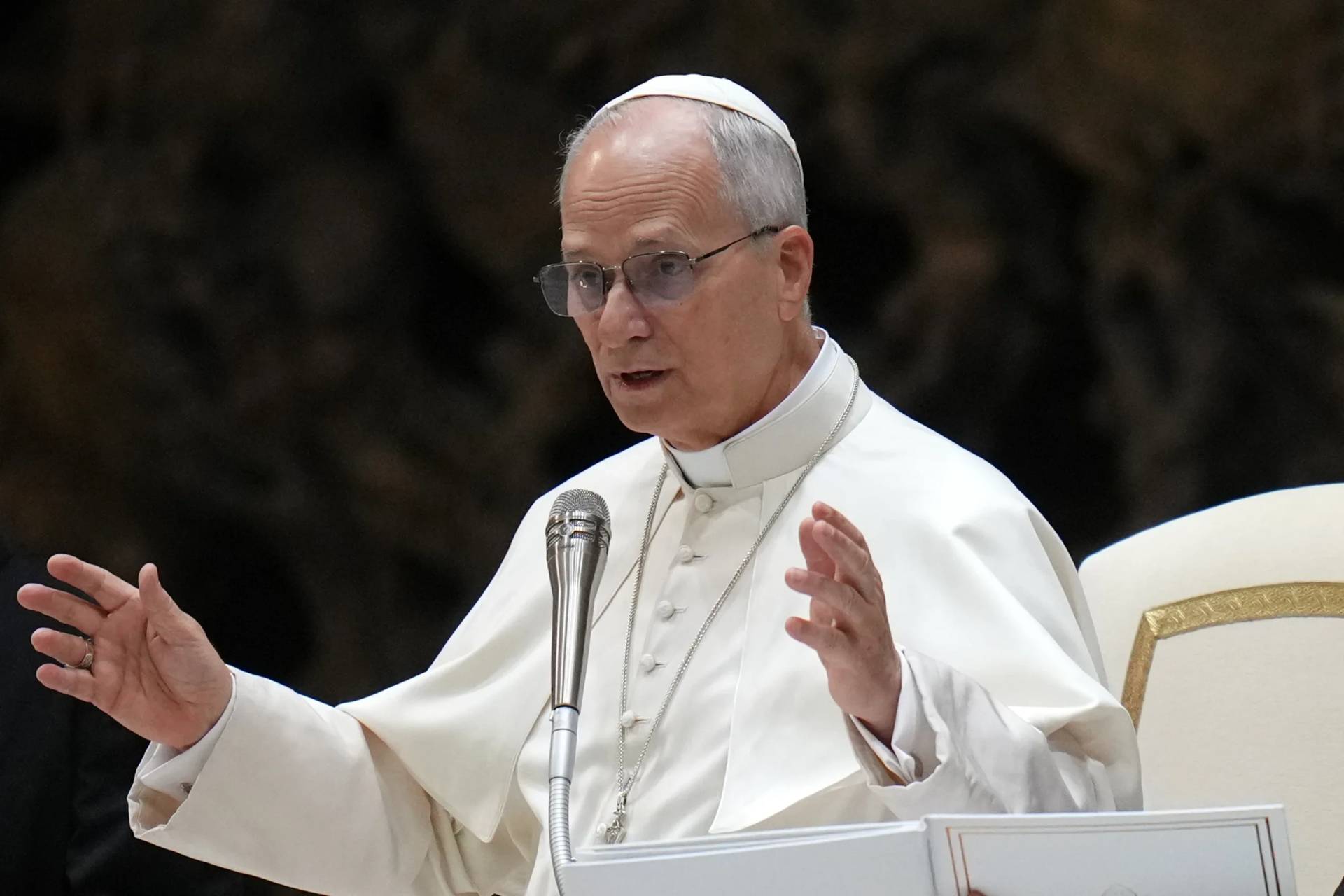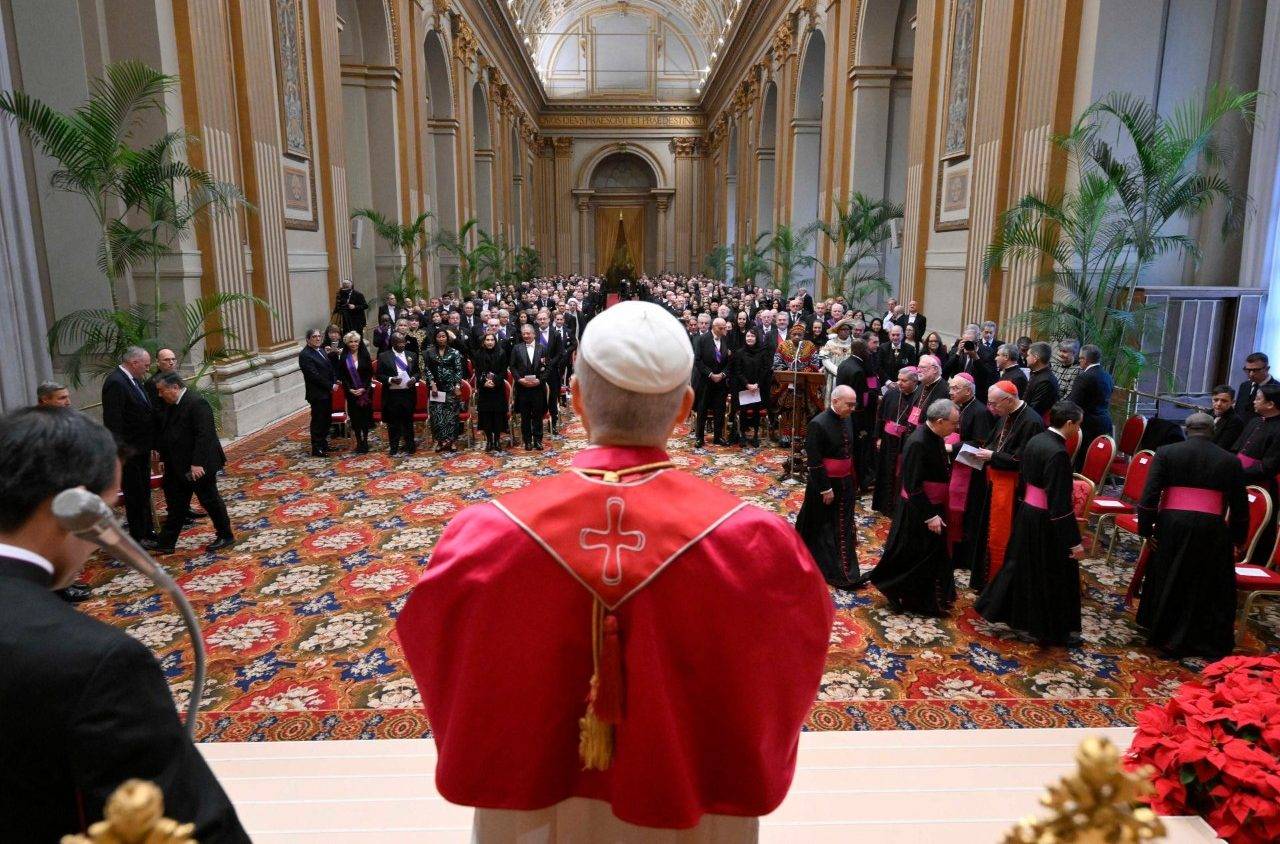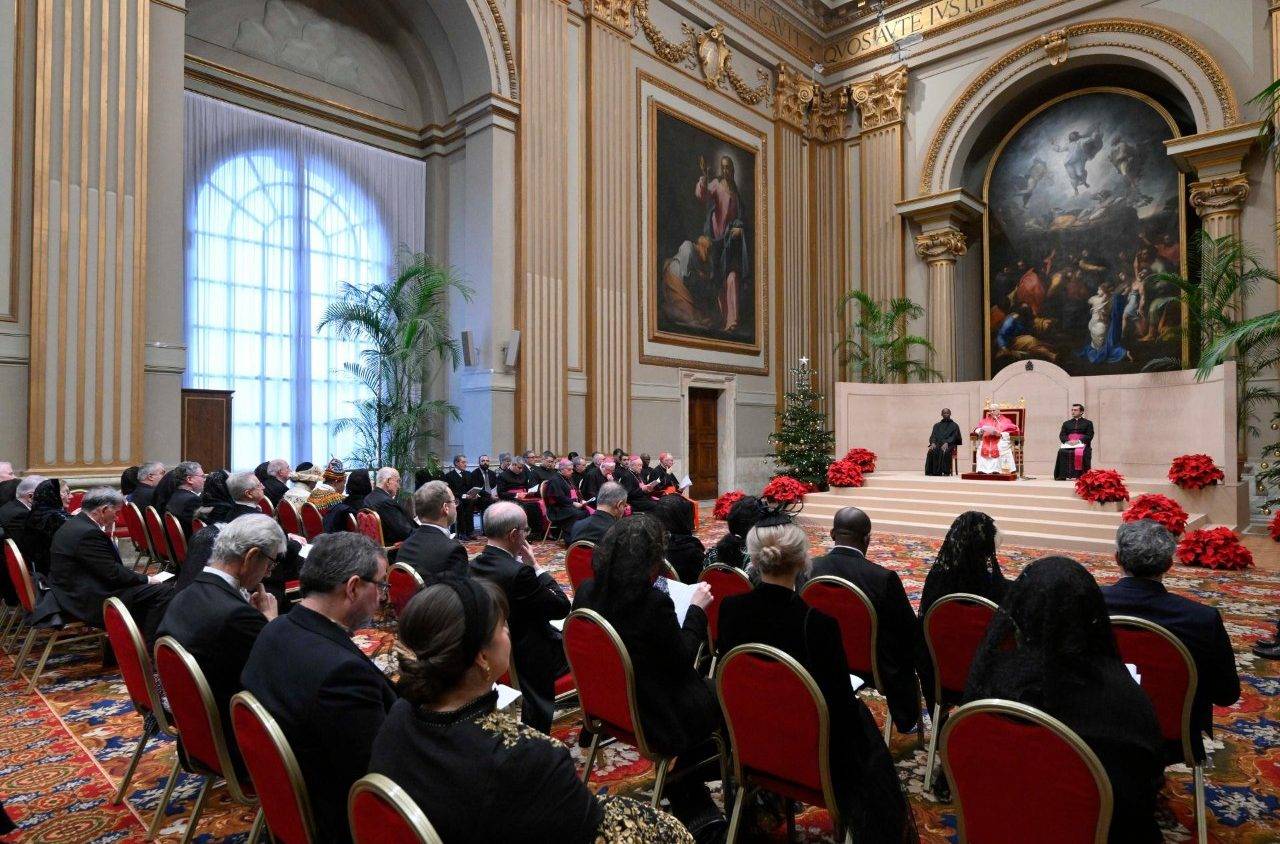ROME – In the early 21st century, the list of bioethical conundrums facing humanity is almost infinitely long. Just because we can whip up new human lives in a petri dish, should we? Just because we can extend life almost indefinitely, should we? Just because we can alter a new life’s genetic code to give it certain perceived enhancements, should we?
According to one of the Church’s leading experts on bioethics, underlying those specific challenges is “a much bigger and broader problem”: Human beings are being “de-personalized” – which is a phenomenon, he says, Catholicism is uniquely equipped to address.
Dr. John Haas, President of the National Catholic Bioethics Center, the largest educational and advocacy group on bioethics in the Catholic world, headquartered in Philadelphia, offered a specific example.
“You have a man in New York who needs a kidney. His physician contacts a supplier in Israel and he goes to his man in the Philippines, who goes into the slums of Manila and finds a healthy, strapping young man, and pays him $1,500 for his kidney with little follow-up medical care,” Haas said.
“The kidney is flown to South Africa, and the man from New York flies to South Africa and he’s got a brand-new kidney. Meanwhile, the guy who gave up the kidney is sent back into the slums with money which very quickly evaporates.
“We’re actually preying on other human beings, and using them to benefit those who are wealthy and powerful,” Haas said.
Haas recently spoke to Crux about challenges arising in the field of bioethics, including the recent Charlie Gard case in the UK, and the Catholic purchase on those issues. The following are excerpts from that conversation.
https://www.facebook.com/crux/videos/2026737750892867/
Crux: What is the National Catholic Bioethics Center?
Haas: We’re fundamentally a think tank. We were established back in 1972, a long time ago, by the Catholic Hospital Association, to be an educational resource to address ethical questions arising from medicine and the life sciences. Basically, that was it.
Over the years, we’ve grown and developed. We’re probably the largest bioethical institute in the Catholic world. We have seven doctoral level bioethicists working for us, and we’re the largest Catholic publisher in the area of bioethics. We provide a consultation service, with over 2,000 consultations in the course of a year … I don’t know anybody out there who comes close to that.
On those consultations, are you talking about hospitals that call you up, doctors who call you up, dioceses that are facing a thorny issue, or what?
It’s all of the above. We have a hotline, where we can be reached 24 hours a day, 7 days a week. Those are usually individual questions. We also get a lot of institutional questions. For instance, if a Catholic health care system is going to collaborate with a non-Catholic system, they come to us so they can collaborate together to achieve some common good without contributing to what we would consider immoral activity in the non-Catholic system. That sounds simple, but …
It doesn’t sound simple at all! I can only imagine how complicated that has to be.
We work through hundreds of pages of legal documents to make sure that happens properly. Those aren’t calls that come in at 2:00 a.m.
Probably most of the personal and clinical questions we get have to do with end-of-life care. I’d say that probably the next largest area has to do with infertility, how couples might be able to overcome their inability to have a child. From there on, it’s the whole range of issues that might arise in a person’s life.
So a couple might call you up and say, ‘Hey, we’re desperate to have a child, but we want to do this in a way that’s consistent with Church teaching.’ You sort of take them by the hand and walk them through it?
Yes, absolutely. As I mentioned, we’re also the largest publisher in the area of bioethics, so we have a wealth of material we can send out to people. But we’re there to help people, to discuss it with them personally, because some of these issues are very complex and hard to understand, so we really want to be available to the people who need it.
Talk about your educational efforts.
One of the most important things we do is a workshop we hold every other year, to which we invite all the bishops of Canada, the United States, Mexico and Central America and the Caribbean. We do it in Dallas, Texas, and they attend workshops and reflect on bioethical issues they have to face in their pastoral role as bishops.
How many bishops normally show up?
The last one in February, we had 140 bishops. It’s the largest gathering of bishops apart from their annual meeting. Most of the bishops in the country also have diocesan memberships in the National Catholic Bioethics Center.
We also have a health care educational program for practitioners. The bishops actually came to us and said, ‘We’re concerned because the moral teachings of the Church are not being uniformly applied throughout the country, within all the various health care systems,’ so they asked us to develop a health care educational program.
One recent bioethics drama pivoted on the Charlie Gard case in the UK, an infant with a rare genetic disorder whose parents wanted to seek experimental treatment but who were overruled by a British court. What’s the main take-away from the case seen through Catholic eyes?
This was a child who was dying, frankly, from a genetic disorder. The child could not have been saved. The hospital in England wanted to withdraw life support from that child, and the parents opposed it vigorously.
These kinds of bioethical questions are also culturally contextualized and conditioned, because in England, if a conflict arises between a health care institution and a patient, or the patient’s proxy, it goes to the courts. That’s what happened, and so you had some judge making the decisions about the kind of care that Charlie Gard, the baby, should receive or should not receive. That wouldn’t happen in the United States. Here, it falls primarily to the patient or the proxy, in this case the parents, to make those decisions. If there’s a conflict between the hospital’s wishes and the patient’s, deference is always given to the patient. So, there’s a different cultural situation between these two countries.
The Catholic Church has developed a very, very rich moral tradition to address these kinds of questions. The Church realizes that our ultimate destiny is to be with God forever in Heaven, and we have a limited finite life here. A lot of people have the mistaken belief that the Catholic Church teaches that you have to do everything possible to keep somebody alive as long as possible, which is not true at all. The Catholic Church says that if a medical treatment is not going to offer a reasonable benefit without an excessive burden, the patient is not obliged to take on that treatment. It’s no longer morally obligatory. It’s optional, they can do it, but they’re not obliged.
In the case of Charlie Gard, it would have been legitimate to stop the interventions, according to Catholic teaching. However, also according to Catholic teaching, the decision should have rested with the patient or his proxies, in this case the parents since the child was incapable of making his own decisions.
You’re an adviser to both the U.S. bishops and the Vatican. If both groups were in a room together and asked you, ‘What are two or three emerging bioethical questions that ought to be on our radar screens right now?’, what’s your answer?
That’s a little difficult, but the issue fundamentally isn’t these individual crises or challenges, but a much bigger and broader problem which the Church is manifestly equipped to address. That is, we live in a society in which human beings are being de-personalized. They’re no longer being treated as human beings. They no longer have ineffable value.
As a result, the weak and the vulnerable are becoming the mines from which the wealthy and the powerful draw their own benefit.
For example, there’s a flourishing international trade in living human organs. You have a man in New York who needs a kidney, his physician contacts a supplier in Israel, he goes to his man in the Philippines, he goes into the slums of Manila and finds a healthy strapping young man, pays him $1500 for his kidney with little follow-up medical care. The kidney is flown to South Africa, and the man from New York flies to South Africa and he’s got a brand-new kidney. Meanwhile, the guy who gave up the kidney is sent back into the slums with money which very quickly evaporates.
We’re actually preying on other human beings, and using them to benefit those who are wealthy and powerful.
We have all kinds of proposals for thawing frozen embryos, which are left over from in-vitro fertilization procedures, procedures used to overcome infertility. Human beings are engendered in a petri dish by putting the gametes, the sex cells, in a petri dish, and embryos are engendered. Some are implanted in the woman, in the hope they will ‘take,’ and the rest are left over and frozen. We have hundreds of thousands of embryos in suspended animation, in liquid nitrogen, which again is a de-valuing of the human person. There are many who call for the thawing of these embryos so they can be disaggregated and used for research. In fact, many embryos are being engendered, human beings are being brought into existence, so scientists can do research on them and then discard them when they’re finished.
So, it’s really this de-valuing of the human person that’s the biggest problem, and gives rise to these individual problems. No one is better equipped to address that broad social and cultural issue than the Catholic Church. We’re so fortunate to have the rich moral tradition of the Church, which gives us tools to work through these problems.

















